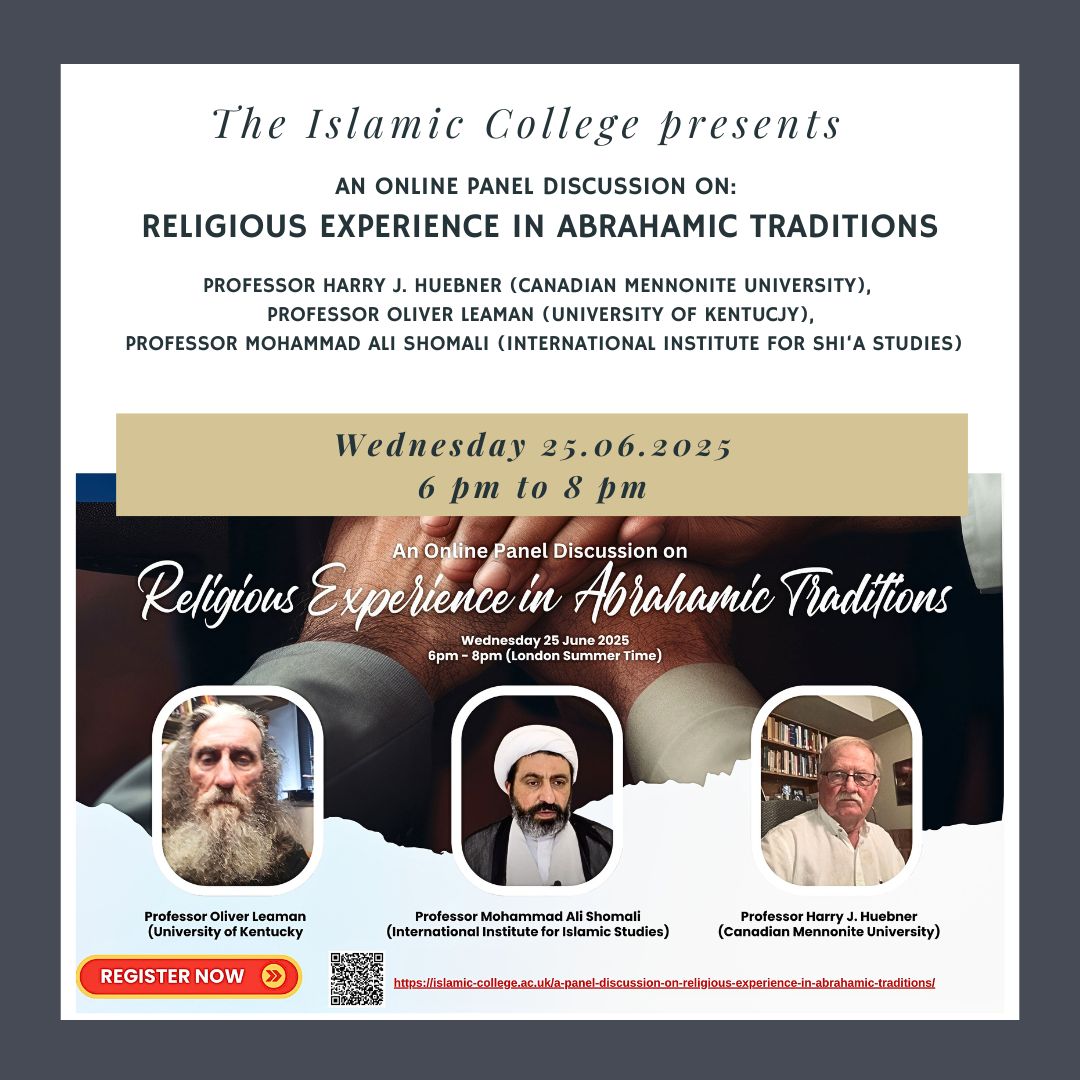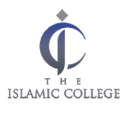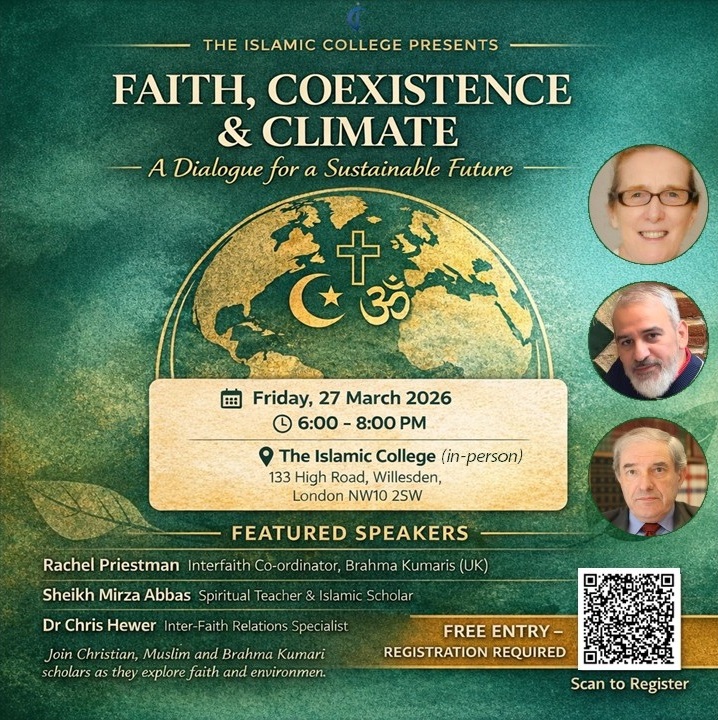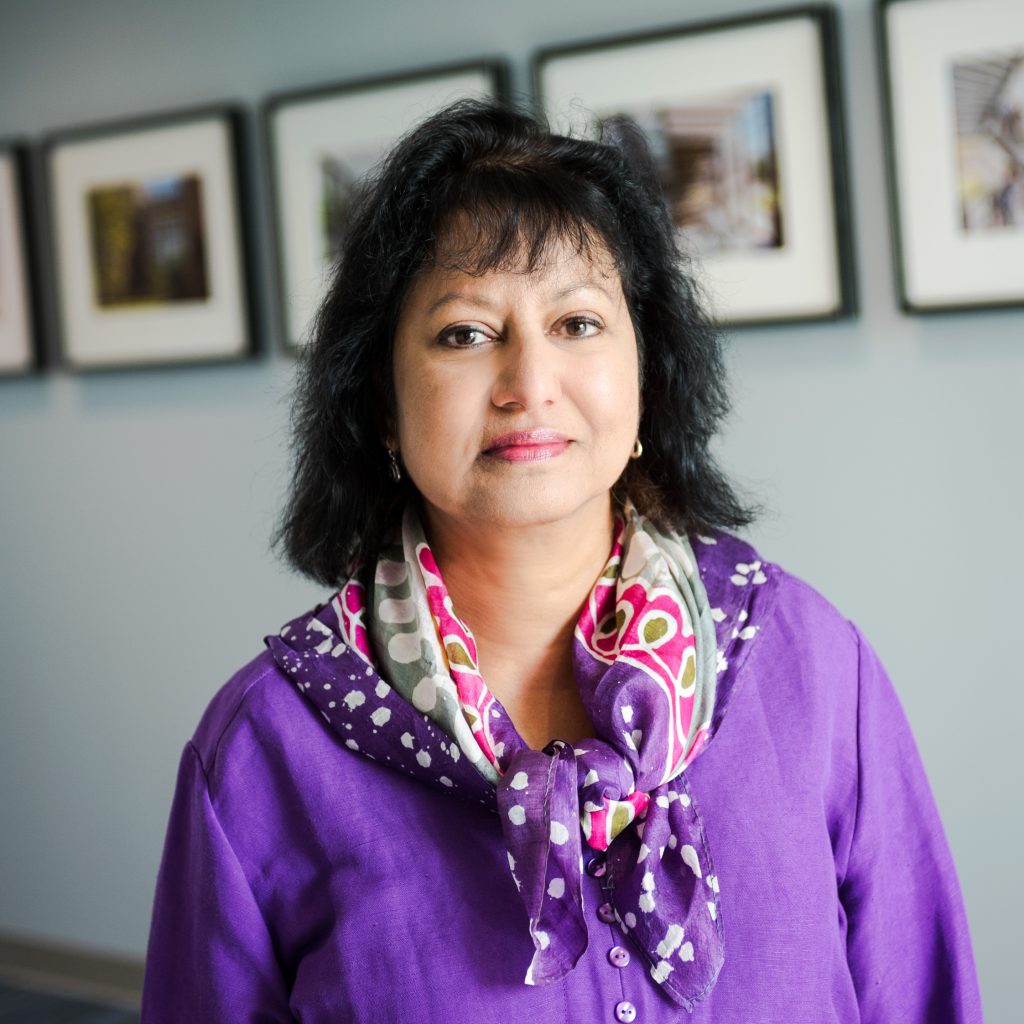
An Online Panel Discussion On: Religious Experience in Abrahamic Traditions

About Event
A Short Account of the Talk:
Religious experience is described in some detail in the Hebrew Bible and yet is not emphasized on the whole in later forms of the religion. There are some Jewish traditions for which experience is significant, but for most Jews it is not so important, and is perhaps replaced by practices such as prayer and law, or a commitment to social justice. There will be a discussion of how and why this occurred, what are its implications and whether or not this presents the religion with a problem.
Bio
Oliver Leaman is Professor of Philosophy at the University of Kentucky and a member of the Accademica Ambrosiana, Milan . He is the author and editor of books and articles in Islamic, Jewish and Asian philosophy and culture, and his most recent book is the Routledge Handbook of Jewish Ritual and Practice, 2022, which he edited.. He remains the editor of the Routledge Jewish Book Series, one of the largest English language academic series of publications.
A Short Account of the Talk:
The Nature and Significance of Religious Experience: An Islamic Perspective Religious experience in Islamic thought is a profound encounter that fosters spiritual transformation, ethical refinement, and divine proximity. Rooted in the Qur’an and Hadith, it encompasses prayer (salat), supplication (du’a), contemplation (tafakkur), and mystical awareness (ma‘rifah), each serving as a pathway to deeper connection with God (Allah).
This presentation explores the nature and significance of religious experience in Islam, examining its personal, communal, and theological dimensions. Drawing from Qur’anic narratives, prophetic traditions (Sunnah), and Shi‘a Islamic teachings, the discussion will highlight experiences such as revelation (wahy), divine love (hubb), and spiritual purification (tazkiyah). Special attention will be given to the transformative power of dhikr (remembrance of God).
Bio
Hujjat al-Islam Dr. Mohammad Ali Shomali is a distinguished Islamic scholar and philosopher. He studied at the Islamic Seminaries of Qum and also earned his BA and MA in Western philosophy from the University of Tehran and his doctorate in moral philosophy from the University of Manchester.
He is the founding director of the Risalat International Institute, which focuses on Islamic curriculum development and educational training. Over the past 28 years, he has led seminars and courses in over 60 cities across four continents, contributing to Islamic education and interfaith dialogue.
Dr. Shomali’s work in interfaith engagement has connected him with scholars and religious leaders in Europe, North America, Africa, and Asia.
His publications include works on Islamic philosophy, ethics, and spirituality, such as Ethical Relativism, Self-Knowledge, Shi‘a Islam: Origins, Faith & Practices, and Lessons on Islamic Beliefs. Dr Shomali is co-editor of Catholics-Shi’a Dialogue volumes:
Catholics & Shi’a in Dialogue: Studies in Theology & Spirituality (2004 & 2011)
Catholic-Shi’a Engagement: Reason & Faith in Theory and Practice (2006 & 2011)
A Catholic-Shi‘a Dialogue: Ethics in Today’s Society (2008 & 2011)
Monks and Muslims: Monastic and Shi‘a Spirituality in Dialogue (2012)
Monks and Muslims II: Creating Communities of Friendship (2014)
Monks and Muslims III: Towards a Global Abrahamic Community (2015)
and co-editor of Protestant-Shi’a Dialogue volume:
Faith and Modernity: A Muslim-Christian Conversation (2018)
A Short Account of the Talk:
The Christian faith is born in religious experience: the miraculous birth of the Christ child, the many miracles of Jesus, his martyr death, his resurrection and ascension. Today the Christian life is often seen as beginning with the personal reception of a divine encounter with Jesus, called “conversion.”
The topic of religious experience within Christianity takes many turns and the literature is rich with philosophers, psychologist, and theologians analyzing the authenticity, especially of the extraordinary accounts of such experiences. In his presentation, Professor Huebner will consider both the exceptional accounts of religious experiences as well as the “ordinary” ones. His main argument is “We could say that it is a religious experience whenever there is a “meeting” of the divine and the human. Or, whenever we receive an act in this world as divine.”
Bio
Harry Huebner is Professor Emeritus of philosophy and theology at Canadian Mennonite University in Winnipeg, Canada. In the past few decades, he has been active in interfaith dialogue and teaching. He is the author of several books, his latest being An Introduction to Christian Ethics: History, Movements, People.




